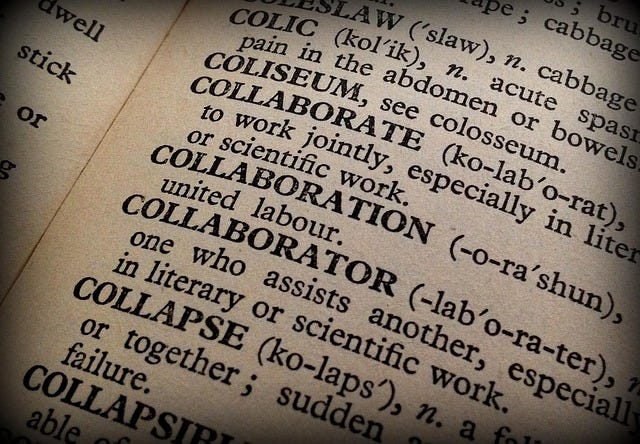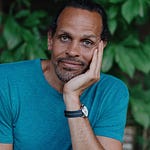What is integrity? What does the word even mean? If you start looking for a single, consistent, and comprehensive narrative definition of integrity you won’t find it. Trust me, I’ve looked. There is a definition of integrity that I’ve been using here at Let Your Life Speak, which we’ll get to in a moment, but even it is only partial. For my own sense of integrity, and the integrity of this project, I need to come up with a better one— one that encapsulates all aspects of our striving to show up as whole, integrated people of conscience.
So, let’s walk through this together…
First, it must be acknowledged that integrity is historically associated with living rightly, or righteously, which has undeniable religious overtones. Not only does that mean integrity involves following God via the teachings of a particular faith, but there is also a connotation of purity, or pursuit of perfection. This is pretty well encapsulated in this definition of integrity offered by Joseph B. Wirthlin:
To me, integrity means always doing what is right and good, regardless of the immediate consequences. It means being righteous from the very depth of our soul, not only in our action but, more importantly, in our thoughts and in our hearts.
I appreciate the first bit of this, doing what is right with a willingness to bear the consequences, but the overall implication here is that integrity means never screwing up— never thinking an unkind thought, feeling rage, vengefulness, or envy. I don’t think that’s realistic, nor is it useful. And most importantly, it’s suggesting that in order to be in our integrity we must only manifest the parts of us that are shiny, positive, and civilized.
That’s not wholeness, and I believe that integrity demands wholeness. This doesn’t mean that we act on our destructive impulses or darkest feelings, but we don’t endeavor to eradicate them either, which is a fool’s errand in any case. We can’t remove our shadow like Peter Pan. It’s always with us. Part of our integrity work is recognizing it and working with it mindfully— healing our wounds as we can, mitigating the damage we do to ourselves and others, and developing emotional intelligence.
The discussion of thoughts and hearts, however, does bring us to an important part of integrity, which is the integration of our public and private selves. Or, as Joyce Meyer says, “Integrity means that you are the same in public as you are in private.” C.S. Lewis takes it a step farther, saying that “Integrity is doing the right thing, even when no one is watching.”

This is the point where we loop back around to religion because people of faith often believe there is never a scenario where “no one” is watching. God is always watching, like an omnipotent, judgmental Santa Claus. If you step out of line, even if no one else knows, He will. This way of keeping people on the path of integrity works, I guess, as long as you subscribe to that sort of faith. Where does that leave the rest of us?
As I’ve said before, I don’t think you need to believe in God to practice integrity. You are, however, called to act in accordance with your beliefs even when “no one is watching” so having something transcendent you bow to is necessary. It can be religious or spiritual— the belief that we are all connected and, therefore, obligated to each other in some essential way. Without this sense of obligation to something that transcends you alone, however, those private, dark moments of reckoning are too lonely and subject to the whims of ego. Our egos don’t, ultimately, give a shit about integrity.
In fact, our egos wish little more than for us to stay comfortable. When we are comfortable we know who we are. We rest in certainty. But life is unrelenting in its uncertainty. Integrity, therefore, also has an aspect of truth to it. Not just being honest, speaking our truth, but confronting the truth of the moment. What Dr. Henry Cloud refers to in his book on integrity as “the ability to meet the demands of reality.”
Dr. Brené Brown brings some of this together in her definition of integrity. She writes in Rising Strong:
Integrity is choosing courage over comfort; choosing what is right over what is fun, fast, or easy; and choosing to practice our values rather than simply professing them.
She’s missing the public/private integration piece, as well as the transcendence piece, but she does bring in the word practice, which is another important aspect that so far we’ve been missing. I’ve said it so many times here and I’ll never stop saying it: integrity is not an immutable aspect of character, something you have, but instead something you do. You can act with integrity. You can live with integrity, but you have to work at it all the time. You’re never done.
Reality, in all of its changeability and complication, never stops and so our work to show up with integrity never stops either.

The definition that I’ve been using here at Let Your Life Speak from author Stephen L. Carter provides a template for how to actually “practice our values”, which is useful. Carter outlines integrity as a three-fold process:
discerning what is right and what is wrong;
acting on what you have discerned, even at personal cost; and
saying openly that you are acting on your understanding of right and wrong.
He further states, and I quite like this bit, “the word integrity comes from the same Latin root as integer and historically has been understood to carry much the same sense, the sense of wholeness: a person of integrity, like a whole number, is a whole person, a person somehow undivided. The word conveys not so much a single-mindedness as a completeness; not the frenzy of a fanatic who wants to remake all the world in a single mold but the serenity of a person who is confident in the knowledge that he or she is living rightly.”
In his book, Carter does a fairly good job of outlining the moral reflectiveness inherent in the practice of integrity, while allowing for a diversity of belief. Where he draws a hard line, though, is when it comes to dehumanization. As he says so beautifully, “It is far too late in the human day for any person of integrity to say with honesty, ‘I have thought the matter through and I have decided to hate those whose race is different than mine.’”
This brings me to the last aspect of integrity which needs to be included in a comprehensive definition. Integrity is relational. It is about the moral quality of our choices as we bump up against each other, which are inherently affected by the degree of our own integration, our own conscious wholeness. If we just stop at thinking integrity is about our own self-development and assume everything after that will just take care of itself, we are being willfully naive. This is why I take issue with the approach to integrity by self-help authors like Martha Beck. In her book, The Way of Integrity, she suggests that integrity is simply structural— having all your parts in working order like a well-functioning airplane. Then you will simply feel good and know what to do. She writes:
If you don’t know what to do next, the way of integrity will provide instructions, like a recipe. If you don’t know where to go next, the way of integrity will show you the next step, like a map. If you follow the directions, you’ll end up happy. Not because this path is virtuous, but because it aligns with reality, with truth. Your life will work for the same reason a well-built plane will fly. Not a reward for good behavior. Just physics.
She strips all of the morality, the question of how we relate to other people, out of the equation. Instead, she wants to encourage people to trust their own intuition as opposed to the mandates of culture. Given her biography— she was deeply traumatized by an upbringing in the Mormon church from which she had to escape entirely— I get why she might end up there. But it’s not enough to just work to become our best, truest, most authentic selves. We also have to engage with the world, which is full of people and systems that are not functioning the way we might like them to.
Not only can those interactions throw us off-kilter in our own integrity practice, but when it comes to systems— governmental, institutional, or communal— we might actually need to change things. Whether and how we do that is also part of our integrity practice.

So, where does all of this leave us? What are the essential pieces of a comprehensive definition of integrity? They are: wholeness and integration, bowing to the transcendent, discernment, right action, relational awareness, emotional intelligence, practice, a commitment to confront reality, and a willingness to face consequences. No wonder there’s no single definition out there! But let me take a stab at it.
Here’s my definition, which is definitely a work-in-progress:
Integrity is a lifelong practice of integration and alignment of the true self with right action in relationship to other people and the wider world, guided by an obligation to something larger than the individual. This integration and alignment are achieved through developing habits of discernment, emotional intelligence, and an acceptance of consequences, allowing for consistent, truthful interaction with self and others regardless of circumstance.
What do you think, my friends? Did I capture it or miss something? Is there something in there that you don’t think should be? I’d love for you to meditate on your own definition and then share it with me, or with all of us in the comments.
In my search for definitions of integrity, I came across the following quote, which sums up my motivation in bringing us all together beautifully. I didn’t want to end without sharing it with you.
It takes courage to create a meaningful life of integrity. It also requires good company. And practice. — Shelly Francis
Thanks so much for your good company.
XO, Asha














Share this post